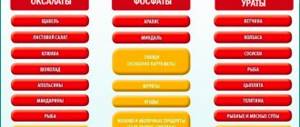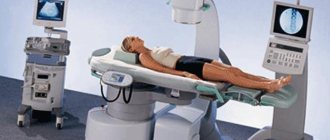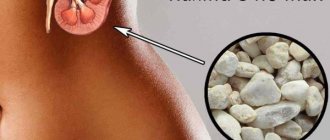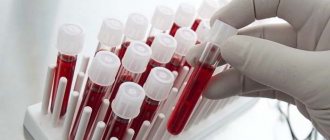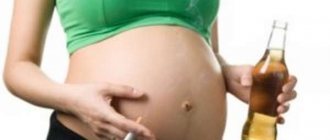Therapy of urolithiasis with folk remedies, in most cases, does not serve as an alternative to drug treatment, but is a good addition that will comprehensively help get rid of the problem, strengthen the immune system, and speed up recovery processes.
For example, herbal decoctions together with medications dissolve well and remove stones from the body. However, before using them, you need to consult a doctor and undergo a series of diagnostic measures.
Treatment of ICD disease with folk remedies is best used in conjunction with drug therapy.
Rules and general principles for treating the disease
It is believed that folk remedies for urolithiasis act on the body more gently and effectively than medications.
But in order for the patient to get a positive result, the following nuances should be taken into account when treating with natural ingredients:
- the size of the stones does not exceed 5 mm;
- the diagnosis has been established accurately;
- a person has no contraindications to the use of medicinal herbs;
- the type of stones is known;
- there are no severe somatic illnesses or diseases in the acute stage.
Before starting treatment for urolithiasis, it is necessary to undergo a series of instrumental and laboratory tests.
During the research, the type, size, and location of the stones are determined, which makes the chosen treatment tactics effective and safe.
In addition, during therapy the following rules must be taken into account:
- Drink enough water, which allows you to remove stagnant urine in a timely manner.
- Follow a dietary diet. The menu is prescribed by a specialist, taking into account the type of stones.
- Do simple physical exercises. A sedentary lifestyle contributes to the formation of stones and the deterioration of their movement through the urinary tract during therapy.
- Use herbal decoctions together with medicinal herbal remedies or other medications (as recommended by the treating specialist).
If the stones grow too quickly or are already large in size, they will have to be removed surgically or a combination of several medications will be used, but treatment will have to be carried out in a hospital setting (when getting rid of such stones, the patient may need urgent medical care). In this case, medicinal decoctions or infusions will help a person recover faster after therapy or surgery.
Other herbs
In addition to herbs, certain herbs can also help in the treatment of urolithiasis. The list is quite long, so only the best herbs and their main properties that will help remove stones from the kidneys or bladder will be discussed here. Among them it is worth mentioning:
- Chamomile, which has a strong antiseptic effect. It is especially recommended to use it in cases where stones are found in the kidneys and ducts, since chamomile eliminates existing inflammation and also relieves pain and spasms.
- Rose hips, which have a fairly strong diuretic effect. Due to the presence of vitamin C, they have an excellent effect on the restoration of damaged tissue structure, which helps reverse the changes resulting from the disease.
- Cranberries, which in the presence of urolithiasis should be consumed in small quantities, but periodically. It has an anti-inflammatory effect and improves immunity, and therefore prevents further development and formation of new stones.
- When moving stones, you should definitely add yarrow to tea: it perfectly helps eliminate the pain that appears due to the disease.
Types of stones
So, before starting treatment with folk remedies, it is necessary to find out what type of stones the patient has.
There are these types:
| Type | Characteristic |
| Oxalate | This type of stone is the most common. Hard fragments have sharp edges and therefore cause severe pain. Treatment will be effective if the urine is more alkaline. Foods rich in oxalic acid (rhubarb, sorrel, spinach; cocoa, chocolate, etc.) should be excluded from the menu. |
| Phosphate | They have a soft consistency and no sharp edges. This type of stone is alkaline. Fried, smoked, excessively salty dishes, rich broths and soups are excluded from the diet, the consumption of hard cheeses, liver, eggs, meat, etc. is limited. |
| Urate | They appear due to increased acidity of urine. The reason for this is excessive consumption of meat and fish products, as well as protein foods. Dietary nutrition for such formations clearly limits the consumption of unwanted foods. |
In ICD, phosphate, urate, and oxalate formations are most common.
Struvite stones are less common.
It is quite rare for a person to form struvite stones. The reason for this is the alkaline properties of the food consumed, so following a vegetarian diet in this case is unacceptable (this will lead to an even greater shift in pH towards the alkaline side).
A complete, balanced diet is recommended, excluding (or limiting) the consumption of citrus fruits. Most often they are found in women.
Another type of stones are cystine stones. The reason for their appearance is a congenital disorder of metabolic processes.
Since the pathology is considered genetically determined, it will not be possible to completely get rid of it. With this type of pathology, they try to exclude from the diet foods rich in the substance methionine (cheese and cottage cheese, eggs, fish, mushrooms, etc.).
Patients are allowed to take protein foods only in the first half of the day in order to avoid increased levels of cystine at night, which contributes to the rapid formation and increase of stones.
Recipes for removing oxalate stones
The recommended period of therapy with medicinal herbs is on average 14 days, after which you need to take a break. Any prescriptions must be agreed with your doctor. If a person is additionally prescribed medications, their dosage will need to be adjusted.
The following tools will be useful:
- Collection of herbs. You need to mix 10 g of knotweed grass, St. John's wort, corn silk and pour in a liter of boiling water. The liquid needs to steep for a quarter of an hour. You need to take this medicine 100 ml in 3 doses before meals for 15 - 20 minutes.
- Watermelon and black bread. These products should be consumed within 1 - 2 weeks. However, you should not eat too much bread and watermelon, as this creates additional stress on the kidneys. Usually you take one medium watermelon and 0.3 - 0.5 loaves of black bread. Some healers advise that during this treatment, nothing more than clean drinking water should be consumed during the day. Then such a diet cannot be followed for more than 1 - 3 days and before using it, consult with your doctor!
- Madder tincture. Pour 10 g of crushed dried plant roots into a half-liter jar and fill it to the top with boiling water. It takes half an hour to infuse. The entire volume received is drunk in several doses throughout the day. Every day you need to prepare a fresh infusion. The course of therapy lasts 3 weeks.
- Branches of grapes. Should be 1 tsp. pour dry crushed raw materials with a glass of boiling water and leave for 1 hour. You need to consume the entire volume in 4 doses.
Knotweed, St. John's wort, and corn silk will help remove small oxalate formations from the urinary system.
Watermelon and black bread help cleanse the urinary organs and remove sand.
The grapevine will help with oxalate formations.
To speed up the passage of stones, you can take a warm bath. It leads to dilation of the ureters and relaxation of the muscles, and relieves spasms and discomfort well.
Phosphate Eliminators
To cope with these stones, you need to use the following traditional medicines:
- Rosehip roots . Dry crushed raw materials in the amount of 50 g are poured with half a liter of cold boiled water. After this, the mixture is placed on low heat and brought to a boil. After 30 minutes, the medicine is filtered and consumed twice a day in a glass. You should drink it before meals.
- Parsley . You need 2 tbsp. pour a glass of boiling water over the finely chopped plant. Infusion requires 12 hours (it is better to prepare the infusion in the evening). You should drink the resulting remedy in the morning on an empty stomach. This treatment is carried out daily for 2 months.
- Collection of herbs. 10 g of comfrey root, dandelion flowers, and yarrow herb are required. All ingredients are thoroughly mixed and poured with a liter of boiling water. The liquid is infused for 1 hour and filtered. Drink half a glass of infusion in the morning and evening.
- Multicomponent collection : 2 parts each of corn silks and birch leaves, 1 part each of omentum and burdock roots. Plants are poured with boiling water in a 1:1 ratio. You need to drink 1 tbsp of the decoction. before every meal.
For treatment to be effective, chocolate and cocoa, alcohol, and legumes should be excluded from the diet. The menu includes cabbage, currants, and various cereals.
Removing urate stones
To get rid of this type of stones, you can use the following means:
- Oats. The grain must be taken along with the husk. It is washed, poured into a thermos and filled with boiling water. The resulting “porridge” is infused for 12 hours. After this time, the grain is crushed and rubbed through a sieve. Further, the healing composition is consumed instead of breakfast. It is allowed to sweeten it a little. Course 7 days.
- Collection of herbs. Take 1 tbsp. l. black elderberries, tansy flowers, burdock. The mixture is poured with a liter of boiling water and infused for an hour. Next, drink 200 ml of liquid three times a day. It is better to use the infusion before meals. Therapy lasts 2 weeks.
- Collection of herbs. Mix burdock root, black elderberry flowers and horsetail. All components are taken in equal proportions. You need 1 tbsp. l. collection, pour 200 ml of boiling water. It infuses for 2 hours. You should drink liquid in 2 doses before meals. Course 10 - 14 days.
- Knotweed. To prepare a medicinal decoction, take the roots of the plant and mix them with 2 - 3 leaves of strawberries and currants. All ingredients are thoroughly crushed and poured with 2 cups of boiling water. It takes 2 - 3 hours to infuse. After filtering, the liquid is consumed in 2 - 3 tbsp. l. before meals (30 minutes). Frequency of administration: 3 times per day for 10 days.
Treatment of this type of stones, as in other cases of urolithiasis, should be carried out under the supervision of doctors.
How to get rid of edema during pregnancy
Sometimes swelling in the legs occurs during pregnancy. Their presence may be associated with improper drinking regimen during pregnancy, with rapid weight gain, with dietary excesses - an addiction to salty and spicy foods. Pyelonephritis often develops as a complication in the second half of pregnancy. This is how the kidneys react to increased load.
It is not worth prescribing conventional herbal remedies during pregnancy to eliminate edema; they are quite aggressive. It is better to prescribe a strict diet with limited salt, as well as a diuretic drink - cranberry juice, lingonberry tea, bearberry decoction. During pregnancy, it is better to buy diuretic tea, which is sold at the pharmacy. It contains components that have no contraindications during pregnancy.
Natural juice therapy
Fresh juices are undoubtedly good for your health. They strengthen the immune system and cleanse the body of harmful substances well.
To remove small stones and sand, you can use the following juices:
- Watermelon. It can be consumed in any comfortable quantity. The main thing is that the berries are fresh and do not contain nitrates. Watermelons cleanse the kidneys well, prevent the formation of stones, and remove small hard formations and sand.
- Radish juice. It should always be drunk fresh. Use the product three times a day before meals, 1 tbsp. l. The course of therapy is 2 weeks. The first effect and improvement in the patient’s condition is noticeable after 5 days. Remember: do not drink radish juice if there is an exacerbation of diseases of the digestive and urinary systems!
- Birch. It restores metabolism and removes salts and sand from the body well. In spring, you can drink it in almost unlimited quantities. Natural juice canned for the winter is also useful.
- Pear juice. It dissolves stones well, but it should not be taken if the patient has chronic constipation, as well as with certain diseases of the digestive system.
- Cranberry. Drink when urine pH is excessively alkaline. It should be diluted with water before use. Comfortable ratio 1:1. Drink 1 tbsp. 2 times a day.
- Carrot. It has a positive effect not only on the genitourinary system, but also on vision, as well as blood vessels and the heart. In the morning on an empty stomach you need to drink 200 ml of juice. It removes sand and small stones from the body well.
- Lemon juice. You should drink it once a day after meals. You will need the juice of 1 lemon and 0.5 cups of hot water. To improve the taste, you can add 0.5 tsp. honey You need to drink the juice hot. Please note: treatment should not be carried out for diseases of the gastrointestinal tract (peptic ulcer, gastritis with high acidity, etc.), as it may provoke an exacerbation of the existing disease.
During treatment with juices, you need to take into account your diet. In addition, we must not forget about the type of stones.
Herbal remedies for lower back pain
We often try to relieve lower back pain with the help of heat. If lower back pain is associated with osteochondrosis or radiculitis, then heat is indicated, but if the kidneys hurt, then heat can do harm.
For lower back pain, especially if lower back pain has appeared for the first time, you first need to determine from a doctor what it is connected with, because if the pain is associated with an inflammatory process in the kidneys, then they can be heated to the point of pus.
The kidneys can be heated only if there is no elevated temperature and no exacerbation of the inflammatory process, and whether there is an exacerbation or not, you can find out only by going to the doctor - after all, to determine this you need to take urine and blood tests and do an ultrasound.
For renal colic, when there is no activation of the inflammatory process, a home method of relieving it using heat has long been known.
This is a hot bath or a heating pad to the lower back (when it is not possible to take a bath) - any heat on the lumbar area. However, this method is indicated under one condition - if the temperature is not increased, even at a low temperature of 37.1-37.2° it is no longer possible to warm the kidneys!
Beneficial effects Collection of herbs according to No. 24 “Urolithiasis” according to the prescription of Mikhalchenko S.I.
- Collecting herbs for urolithiasis prevents the formation of stones, promotes the dissolution of stones and the removal of sand.
- Stimulates kidney function, cleanses the blood and removes toxins from the body, improves the functioning of the kidney channels.
- Regulates water-salt balance, reduces the amount of uric acid, helps restore metabolism.
- Relieves inflammation, increases urination, relieves pain.
- Helps with gout, rheumatism and salt deposits.
- Useful as a general tonic, relieves swelling, and has a beneficial effect on the blood vessels of the brain.
- Indications for use Herbal collection No. 24 “Uurolithiasis”
- Urolithiasis, pyelonephritis, glomerulonephritis;
- Renal failure, hydronephrosis, nephroptosis;
- Swelling, acid-base imbalance, intoxication;
- Weakened kidney function, circulatory disorders;
- Oncological diseases of the kidneys;
- Reduced immunological reactivity of the body, decreased tone, energy imbalance.
Symptoms of the disease
There are no pain receptors in the kidney, so while the stone is in the calyx, the person does not feel it, and the outflow of urine is not impaired. Painful symptoms appear if the stone begins to move and moves into the pelvis. It’s even worse if the ureter is blocked. Renal colic occurs - acute cramping pain in the projection of the lower back, radiating to the groin, abdomen, and leg. Colic can be unbearable - it depends on the type, size of the stone, and how it moves. There are other symptoms of ICD.
- Cutting, burning during urination. They indicate the removal of sand and small stones.
- Changes in urine - cloudiness, appearance of purulent, bloody discharge.
- Frequent urination, nagging pain in the lower abdomen. This is how bladder stones manifest themselves.
- Pain in the kidney area with a sharp shake, after excessive consumption of salty foods, or drinking too much, for example, beer.
- Exacerbation of urolithiasis is often accompanied by fever, nausea, and vomiting.
In a state of exacerbation, the only correct way to treat urolithiasis is to consult a doctor
People of any age and gender can have kidney problems; the causes of neoplasms have not yet been fully studied. But some of the most common ones can be identified. These include:
- poor nutrition;
- sedentary lifestyle;
- dehydration;
- formation of an obstruction to urine excretion;
- hereditary disorders;
- diabetes and hypertension;
- irritable bowel syndrome;
- infections in the urinary tract.
Dull pain in the back and kidneys, which descends down the abdomen, characterizes the course of the disease. These signs indicate that the body has all the prerequisites for the formation of stones. Neoplasms spread to the ureters and bladder. When taking tests, there may be impurities of blood and protein in the urine. But sometimes the disease does not manifest itself at all, that is, it is asymptomatic. Therefore, an accurate diagnosis is needed to choose the right medicine.
Doppler ultrasound of the kidney vessels and kidney ultrasound will help determine the nature of the stones and their location. Only after this can you safely select medications for the treatment of urolithiasis, medicinal preparations, and medicinal decoctions.
Complex treatment therapy includes antibiotics (tablets or injections), drugs that inhibit the synthesis of uric acid, help improve urodynamics, adrenergic blockers, and phytotherapeutic agents.
Urolithiasis is all the more insidious and unpredictable because it does not manifest itself in any way until stones form. The first sign that there is some kind of formation is an attack of renal colic. The patient begins to urinate frequently and painfully, and is bothered by nausea and bloating. When the stone has passed the ureter and entered the bladder, the pain slowly disappears.
Everyone without exception who suffers from this disease experiences an attack of urolithiasis at least once in their life. At home, without proper assistance, this condition can lead to irreversible consequences.
Surgery can be avoided if you start taking the right medications on time.

